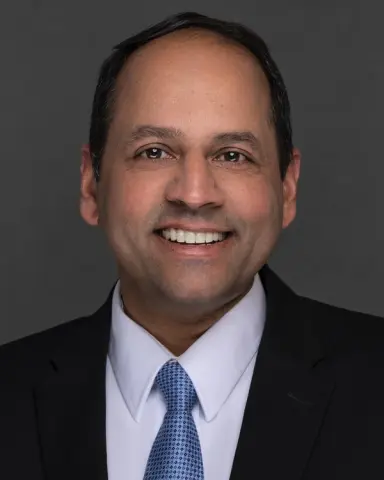Abstract:

Koppers is an integrated global producer of many industrial materials. We are one of the leading producers of railroad ties in North America, offering many different types of wood offered in multiple lengths. Railroad ties are stored in very tall, ordered stacks using a pattern called “German Stacking” that facilitates airflow to the product. Inventory verification currently requires significant effort, because stacks of railroad ties require very large outdoor areas for storage (approx. 100 acres). The sales and operations teams at Koppers would like a system that allows them to easily verify the amount of stock available on a daily basis. They would like to eliminate the current system of long walks to count stock, particularly when it is raining or very cold! The students will implement their prototype at the Koppers plant in Galesburg, Illinois. (MDP will provide transportation, hotels, etc.)
Impact:
An accurate, easy to use system for inventory verification would improve the efficiency of the sales organization, allowing them to provide customers with better service. For individuals, a successful system would eliminate the many hours of manually counting railroad ties, allowing them to work on higher-value tasks.
Scope:
Minimum Viable Product Deliverable (Minimum level of success)
- Develop an understanding of the current business, the various product lines, inventory management systems, storage facilities, operational safety constraints at the storage site, particularly the needs and challenges of the Sales department and Plant Operations who will be the primary users of the tool
- Literature and knowledge review of relevant prior industrial knowledge, machine vision algorithms, similar machine vision applications, automated guidance systems (e.g., gps, waypoints, bar codes, reflectors, etc.), as well as commercially-available drone mounted cameras and their navigation capabilities
- Determine the algorithm (method and necessary input variables) to accurately determine the location and type of tie and total stock available in a single stack. Demonstrate the accuracy of the method using static daylight images provided by the sponsor. Download to process the information offline
- Determine multiple methods to identify a specific stock type (wood type and length), its location within the storage yard, and to precisely determine stack location. Select the most appropriate solution concepts to develop into prototype
- Identify camera and other hardware and purchase/order before the end of Winter term (ideally sooner)
- Initial prototype path planning completed
Expected Final Deliverable (Expected level of success)
- Integrate the full system (drone, camera, navigation) to obtain required images
- Validate the prototype against requirements with on-site testing in Galesburg, Illinois. (Transportation and lodging provided by MDP)
- Iteratively improve the total system design (drone, navigation, and machine vision) until suitable inventory count accuracy is achieved
Stretch Goal Opportunities: (High level of success)
- Identify damaged ties within stacks
- Provide real-time image processing from the drone
- Strengthen navigation functionality to perform in a wider range of environments, or more autonomously
- Extend the machine vision algorithm to a wider range of environments, for example, snow-covered stacks, work in low light, in active rain or snow, etc.
Below are the skills needed for this project. Students with the following relevant skills and interest, regardless of major, are encouraged to apply! This is a team based multidisciplinary project. Students on the team are not expected to have experience in all areas, but should be willing to learn and will be asked to perform a breadth of tasks throughout the two semester project.
Drone Path Planning (2-3 Students)
Specific Skills: Experience with autonomous and guided navigation techniques and path planning algorithms
Practical drone experience
Likely Majors: ROB, CS, AERO, EE, ME
Hardware and Beacons (1-2 Students)
Specific Skills: Beacon comms, geo-locating drones, airframe hardware integration, sensor selection and integration
Likely Majors: CE, EE, or practical experience
Machine Vision (2-3 Students)
Specific Skills: Knowledge/experience working with machine vision algorithms
General programming for data management.
EECS 281 (or equivalent) is required. Strong preference for students that have completed or are co-enrolled in Machine vision/Computer vision course
Likely Majors: ROB, CS, EE, CE, DATA
Additional Desired Skills/Knowledge/Experience
- Practical experience flying drones and working with camera-mounted drones to obtain information
- Successful experience with team-based project work. We particularly value experience from engineering competition teams
- A proactive, “can-do” attitude
- Knowledge of guided and autonomous navigation techniques
- Knowledge and experience with machine vision, including data formats, processing data, etc.
- Knowledge of inventory data organization and management techniques.
- Statistics
Sponsor Mentor

Tushar Lovelekar
Vice President, Information Technology
Tushar Lovalekar is Vice President, Information Technology at Koppers. In this role, Tushar oversees the company’s global IT operations, including stakeholder relations, strategy, governance, and digital transformation.
During his 20-year tenure at Koppers, Tushar has held various positions of increasing responsibility within the IT function, working on initiatives related to ERP systems, mobile computing, data analytics, SOX compliance, and cybersecurity. In 2021, Tushar was named as a finalist for the Pittsburgh Technology Council’s CIO of the Year award. He is a governing body member of the Pittsburgh CIO Executive Summit, serves on the Board of Blind & Vision Rehabilitation Services of Pittsburgh (BVRS), and serves on the Board of Greater Pittsburgh CIO Group.
Sponsor Mentor

Ashley Coup
Manager, Global Corporate Innovation
Ashley Coup is the Manager of Global Corporate Innovation at Koppers, where she is responsible for driving the company’s corporate innovation program through the use of various innovation methodologies. She designed and manages Koppers global open innovation platform; led the design of Koppers innovation center; and coordinates and facilitates human-centered design-based ideation sessions for cross-functional teams of employees. She also founded and ran Koppers first accelerator business, Koppers Utility Services, for its first 18 months. Currently, she drives corporate innovation through a holistic program she developed, which works to engage both internal employees and the external innovation ecosystem in innovation initiatives aimed to provide growth opportunities for the corporation.
Ashley earned her bachelor’s degree in Chemical Engineering from the University of Pittsburgh, and her master’s degree in Business Administration from the University of North Carolina. She was recently named to the 2022 class of Pittsburgh Magazine’s 40 Under 40, and is a member of the advisory board for Robert Morris University’s Massey Center for Entrepreneurship and Innovation.
Faculty Mentor

Vineet R. Kamat
Professor, John L. Tishman CM Faculty Scholar
Department of Civil and Environmental Engineering
Vineet Kamat is a Professor of Civil and Environmental Engineering at the University of Michigan. His group researches methods to enable effective human-robot work collaboration in the construction, operation, and maintenance of civil infrastructure and the built environment. Their research has developed several licensable technologies that support automation and robotics, including modeling techniques that help on-site construction robots with autonomous decision making.
Weekly Meetings: During the winter 2024 semester, the Koppers team will meet on North Campus on Wednesdays from 2:00 – 4:00 PM.
Work Location: Most of the work will take place on campus in Ann Arbor. There will likely be the opportunity for team travel to Koppers location to interview stakeholders and observe the stockyard for inventory. (MDP will provide transportation, food and housing)
Course Substitutions: CE MDE, ChE Elective, CS Capstone/MDE, DS Capstone, EE MDE, CoE Honors, IOE Senior Design, ROB 490, ROB 590, SI Elective/Cognate
Citizenship Requirements: This project is open to all students. Note: International students on an F-1 visa will be required to declare part time CPT during Winter 2024 and Fall 2024 terms.
IP/NDA: Students will sign IP/NDA documents that are unique to Koppers.
Summer Project Activities: No summer activity.
Learn more about the expectations for this type of MDP project
